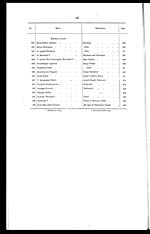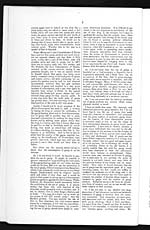Medicine - Drugs > Report of the Indian Hemp Drugs Commission, 1894-1895 > Volume VI > Evidence of Central Provinces witnesses
(19) [Page 1]
Download files
Individual page:
Thumbnail gallery: Grid view | List view
![(1) [Page 1] -](https://deriv.nls.uk/dcn17/7490/74908826.17.jpg)
INDIAN HEMP DRUGS COMMISSION.
EVIDENCE OF CENTRAL PROVINCES WITNESSES.
1. Evidence of MR. J. W. NEILL, Judicial Commissioner, Central Provinces.
25. The only one of these drugs that is largely
consumed in the Central Provinces is ganja. It
is not easy to prove that the consumption of ganja
is on the increase, but I certainly believe that to
be the fact. I am free to admit that my own per-
sonal inquiries on the subject have been limited,
and that I have not perhaps been in a position to
acquire information at first hand, but many circum-
stances appear to me to point to the fact that the
use of ganja has acquired a greater vogue.
It is known that the use of ganja has always
been common among the general labouring popula-
tion of many, if not all, our districts, more parti-
cularly perhaps those districts of which the popu-
lation is largely made up of the descendants of
immigrants from Northern India; and it is also
known that the same classes or many of them
that use ganja also drink country spirit, but it is
far from easy to make an estimate of the numbers
who take ganja or of those who both smoke ganja
and drink spirit. Equally difficult is it to esti-
mate the annual consumption of ganja in the pro-
vince. In 1878 the Commissioner of Excise, Mr.
Nicholls, thought the consumption of the province
would not be much over 5,000 maunds. This
must have been a ludicrous over-estimate if only
taxed ganja is now consumed. It serves to show,
however, how little was really known about the
matter.
In 1882 the Commissioner of Excise, Mr.
Anderson, again said: "Still we have much to
learn as to the actual quantity of the drug which
the people consume."
And in 1884 the same Commissioner said:
"With our present knowledge it is really impos-
sible to estimate with anything like certainty the
probable yearly consumption of ganja in this pro-
vince." I am not aware that since then the
information acquired is such as would enable the
Commissioner of Excise to express any confident
opinion on the matter. This being so, it is easy
to see that any opinion that the use of ganja is on
the increase or decrease must be to a very large
extent conjectural. I have said, however, that I
believe it to be on the increase, and I will men-
tion some of the reasons which make me think so.
In the first place, such is, I think, the general
opinion among natives, not only amongst those
who have become Europeanized and who have so
readily learnt to damn the sins they have no mind
to, and to wish for interference with the ways of
their neighbours which are not their ways, but
also among those who remain Hindus and Orient-
als, and refrain from passing any moral judgment
on the indulgences of others.
Next, it will be seen from the information which
the Provincial Excise Reports afford, that the quan-
tity of ganja taxed, and which passes into con-
sumption, has on the whole (allowing for apparent
fluctuations which can in a great degree be
explained away) steadily and largely increased.
In 1892-93 it was nearly double what it was ten
years before. Of course this may be ascribed
wholly or in part to taxed ganja taking the place
of untaxed ganja, and 1 readily grant that ganja
could be easily smuggled into many districts from
outside, and that cultivators of the ganja-bearing
plant might keep back part of the produce of their
cultivation and surreptitiously sell it. Also that
a few ganja plants might be grown in small plots
by individuals to provide for their private con-
sumption of the drug; and that as these practices
were more and more successfully put down, ganja
smokers would have to go to licensed vendors for
their supply, and the quantity of taxed ganja sold
would increase without any corresponding real in-
crease of consumption. All this I freely concede.
But it appears to me that if it was only that taxed
ganja was substituted for untaxed and illicitly
obtained ganja, the great increase would have shown
itself in the earlier years after cultivation of the
ganja-bearing plant was placed under restriction,
imports watched, and all illicit cultivation severely
punished. But such is not really the case. The
steady and regular increase set in some six or
seven years later, and it seems to be accepted that
smuggling to a considerable extent still continues.
I think, therefore, that figures which can be relied
upon show that there has been some real increase
of consumption, and this increase is greater than
the increase in the population.
Thirdly, I would draw attention to the fact that
this increase of consumption has occurred, al-
though the retail price of ganja, is about five
times as great as it was before the direct tax-
ation of the drug and the restriction of cultivation
in 1875-76.
Fourthly, it would not be surprising—would
indeed be only what might be expected—if per-
sons who both smoke ganja and drink country
spirit, or if those who will have some kind of
stimulant and have no prejudice against any one
particular stimulant, and I think that among these
one may reckon a large proportion of the labour-
ing population, if these persons were, I say, to
take more to ganja smoking, because the price
at which alone it can be sold placed the other
ordinary stimulant, country spirit, beyond their
reach. Now, it is undoubtedly the case that
country spirit has been made dear, and that the
policy pursued has been to raise the price as much
as possible, or at any rate the policy of limiting
the number of places of manufacture, taking as
high a still-head duty as possible. Discouraging
by our system the brewing of weak liquor and
maintaining monopolies and restrictions of all sorts
has had that effect. Compared with ganja, even
at the present retail selling rates, the price of
liquor is high, and while persons who drink
vol. vi.
D
Set display mode to: Large image | Zoom image | Transcription
Images and transcriptions on this page, including medium image downloads, may be used under the Creative Commons Attribution 4.0 International Licence unless otherwise stated. ![]()
| India Papers > Medicine - Drugs > Report of the Indian Hemp Drugs Commission, 1894-1895 > Volume VI > Evidence of Central Provinces witnesses > (19) [Page 1] |
|---|
| Permanent URL | https://digital.nls.uk/74908824 |
|---|




